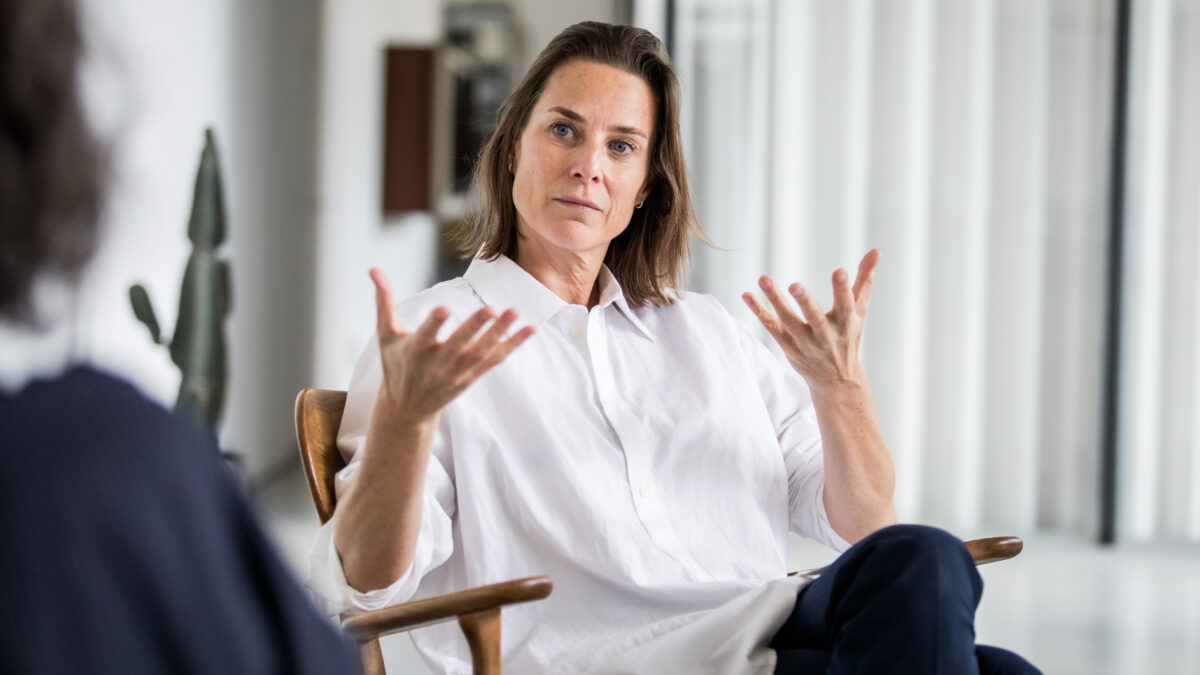“It Felt Like Coming Home to Myself”—A Conversation with Tinka Claeys from Ashridge’s Online Coaching Program
Relational coaching can transform how you relate to others, to the present moment, and to yourself. When executive coach Tinka Claeys joined Ashridge’s Coaching Qualifications Online Intake, she was answering an intuitive call for something deeper. At Ashridge, she found a sense of alignment that surprised her.
In this conversation, Tinka reflects on why the online coaching program felt like “coming home”, how online learning reshaped her presence as a coach, and why thoughtful endings matter just as much as powerful beginnings.
Q: Tinka, what initially drew you to the Ashridge programme?
I was looking for a more profound training experience to deepen my coaching skills. I had previously completed a first module of ICF in Belgium, but it didn’t quite meet my expectations. At the time, I couldn’t pinpoint why—but as soon as I started at Ashridge, I immediately recognised what I had been missing: the theoretical depth and the strong focus on relational aspects.
It felt like coming home to myself, using a method that already naturally aligns with who I am.
Q: What convinced you Ashridge was the right next step?
Someone I trust—who has extensive knowledge and research experience in coaching programs—highly recommended it. I started reading about Ashridge online and became intrigued by this relational approach to coaching. It was an intuitive pull, a desire for theory and a method that resonates with my identity as a coach.
Q: You say the theory stood out to you. Can you share more about that?
Yes—the reading list was fascinating. It allowed me to go deeper into the concepts we touched on during our online sessions. For me, it was primarily about building a solid theoretical foundation, but I also learned to reflect more critically on the profession and the practice of coaching itself.
One of the most significant learnings was the reflective aspect of coaching. The practice of reflecting on coaching itself, facing questions and mirrors that challenge your perspective, was something I had never experienced so deeply before.
Q: Has this impacted your life beyond your professional role?
Absolutely. I’ve fully embraced the process of reflection—it feels like oxygen for my thinking and being. This reflective practice has uncovered patterns I wasn’t even aware of, leading to a profound personal and professional transformation.
I’ve learned to be more present, to give space and truly listen. These are not only skills I apply in my professional coaching practice but also in my daily life, where they have made a meaningful difference.
Q: You recently completed your final workshop. How did that shape your perspective on coaching?
It was—as always—reflective and thought-provoking, particularly around the theme of endings. I’d recently completed a few coaching trajectories, and the way I now approach endings has fundamentally changed.
I’ve become much more mindful of how I handle the conclusion of a coaching relationship—paying attention to the way it is ended, the care I put into it, and the evaluation process. This awareness has been significantly shaped by the theoretical approaches discussed during the workshop.
Q: Looking ahead, what’s next for you?
Next year, I’ll be focusing on completing my assignment and accreditation. My intention is to start the second year within the next five years because I genuinely enjoy the reading, the deeper thinking, the structured framework, and the study process.
I think that once I’ve had the chance to put more of what I’ve learned into practice, I’ll be ready to continue with the next phase. But I want to allow myself the space to fully integrate the first year’s learning before moving forward.
Q: How did the online format work for you, practically and emotionally?
One of the great advantages is that it can be done from a distance. The program is already quite intense—and travelling from Belgium to the UK for each session would have been even more so.
A significant part of executive coaching today also happens online. Being able to coach effectively in an online environment is a valuable skill. I’ve learned to tune in and really feel into the relationship, even through a screen. That used to intimidate me, and I’ve now overcome the assumption that online work is somehow less powerful.
Q: Can you give an example of how coaching online surprised you?
I’ve had moments in sessions where I could feel so much in the present moment, despite only seeing part of the person. There are so many subtle cues: the rhythm of their speech, hesitations, silence, glances away from the camera, small movements, how they hold their posture.
It also made me reflect on my own online presence—from the background behind me, to the colour of my clothes, to the type of headphones I use. A peer pointed this out to me in a session, and it really made me more conscious and intentional about how I show up in the virtual space.
Q: Were there any challenges with building connection remotely?
Yes. I do feel that it’s harder to build informal group dynamics online. You definitely get to know each other, but the interactions stay mostly within the structured coaching context. I miss the casual moments—like chatting at the coffee machine.
We did have one informal moment—a goodbye drink at the end of the sessions—which was lovely. It made me realise how meaningful those less-structured moments can be.
Thanks for sharing your story, Tinka, and all the best for your dissertation and accreditation!
Tinka’s story is a powerful reminder that deepening your coaching practice can be transformational. Her experience with the Ashridge online coaching program demonstrates how a relational, theory-rich, and reflective approach can elevate both your practice and your presence in the world.


